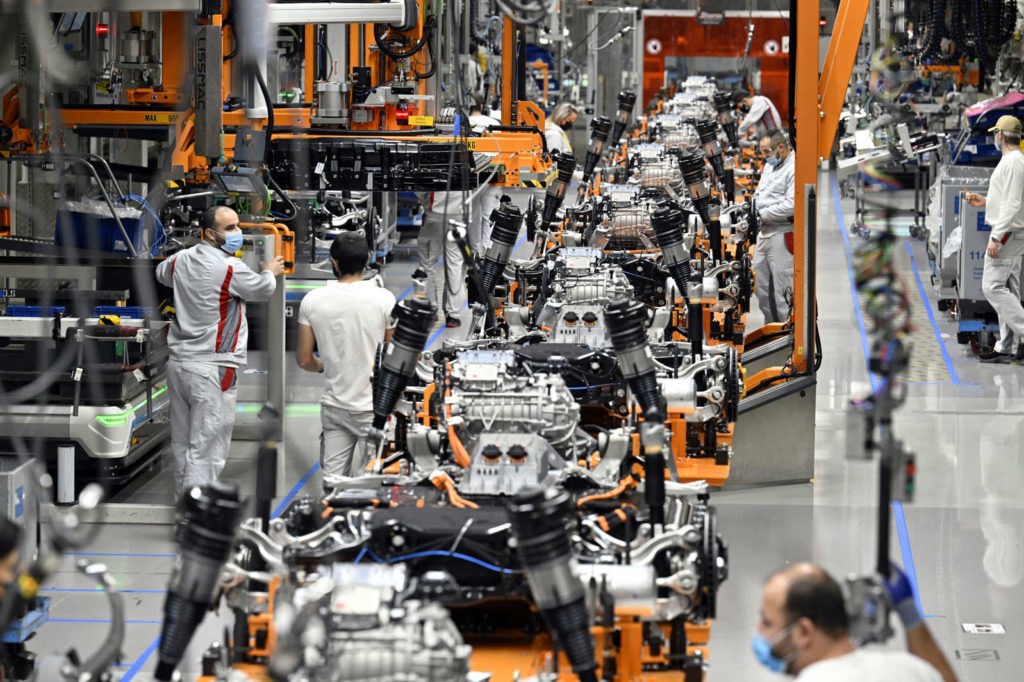Supply challenges for several metals that are key to the European Union's green energy transition have highlighted the urgent need for the bloc to ramp up its recycling system and supply chain, a recent Belgian study has found.
Meeting the European Union’s Green Deal target of climate neutrality by 2050 will require 35 times more lithium, and 7 to 26 times Europe's current use today of increasingly rare earth metals, an independent study from the University of Leuven (KU Leuven) has shown.
“Europe needs to decide urgently how it will bridge its looming supply gap for primary metals. Without a decisive strategy, it risks new dependencies on unsustainable suppliers," Liesbet Gregoir, lead author at KU Leuven, said.
The study found that a rapid increase in the annual supply of other metals that are essential to Europe’s plans for producing electric vehicles and batteries, renewable wind, solar and hydrogen energy technologies, including aluminium, copper, nickel, cobalt and silicon, is also required for the energy transition.
“Disruptions caused by COVID-19, the Russian invasion of Ukraine, increases in energy and raw materials prices, are yet another stark reminder of the importance of raw materials for our industrial ecosystem and the resilience of our value chains," Thierry Breton, EU Commissioner for the Internal Market, said at the report's launch event.
Energy independence
This echoed the International Energy Agency (IEA)'s warning of the impact of metal supply challenges on Europe’s energy transition away from fossil fuels and towards energy independence.
The invasion of Ukraine highlighted the EU's energy dependency on Russian fossil fuels. European Commission President Ursula von der Leyen has repeatedly called for an acceleration of the clean energy transition and a need for energy independence.
"The quicker we switch to renewables and hydrogen, combined with more energy efficiency, the quicker we will be truly independent and master our energy system," she said at the start of March.
Yet, the study found that, although the EU has committed to accelerating its energy transition and producing a great deal of its clean energy technologies domestically, it remains import-dependent for much of the metal needed, adding that critical shortfalls loom within the next 15 years.
Related News
- Electric car sales boom but need for charging points becomes acute
- Belgium receives EU support to accelerate phase out of Russian gas and oil
While production has increased in other parts of the world, it has dropped in Europe. The global refining capacity for the production of battery metals and rare earths is currently dominated by coal-powered factories in China and Indonesia, and Europe still relies on Russia for its current supply of aluminium, nickel and copper.
Researchers stressed the need for the EU to link itself to "proven responsible suppliers managing their environmental and social risks," until it reaches a level of independence.
"Today we don’t see the community buy-in or the business conditions for the continent to build its own strong supply chains. The window is narrowing; projects really need to be taken forward in the next two years to be ready by 2030."
Not (yet) a lost cause
The study found that there is "theoretical potential" for new domestic mines to cover between 5% and 55% of Europe’s 2030 needs, with the largest project pipelines for lithium and rare earths. However, these are usually blocked by local community opposition and permit challenges.
The creation of these mines would also require refineries to transform mined ores and secondary raw materials into metals or chemicals.
However, the study did find that, if Europe invests heavily now and fixes supply chain bottlenecks, up to 75% of Europe’s need for clean energy through the use of metal could be met through local recycling by 2050, which would help the bloc shift toward self-sufficiency.
“Recycling is Europe’s best chance to improve its long-term self-sufficiency. It’s a step-up that our clean energy system will be based on permanent metals which can be recycled indefinitely, compared with today’s constant burning of fossil fuels," the study read.
Breton agreed with the study's conclusion, stating that recycling is a long-term opportunity to improve EU metals and raw materials resilience.
“Without a more strategic approach to developing primary and secondary raw materials capacity in Europe, there will be no green and digital transition, no technological leadership, and no resilience," he said.

